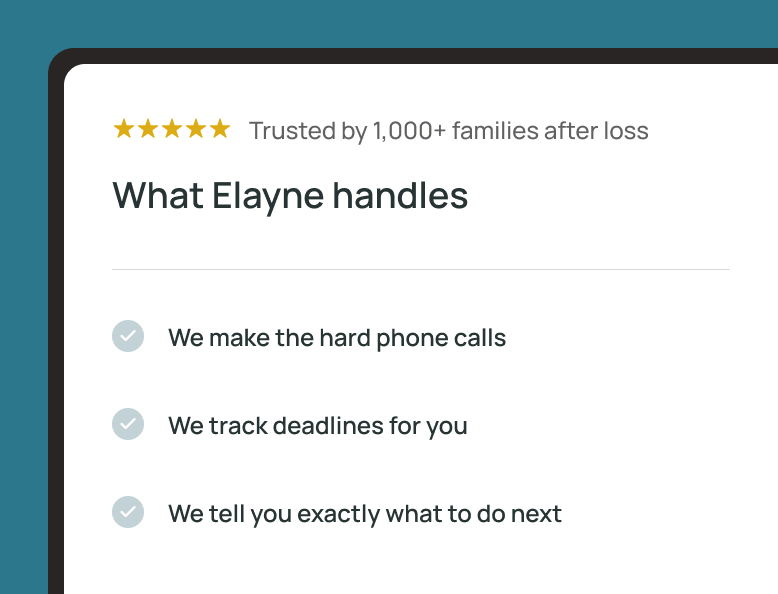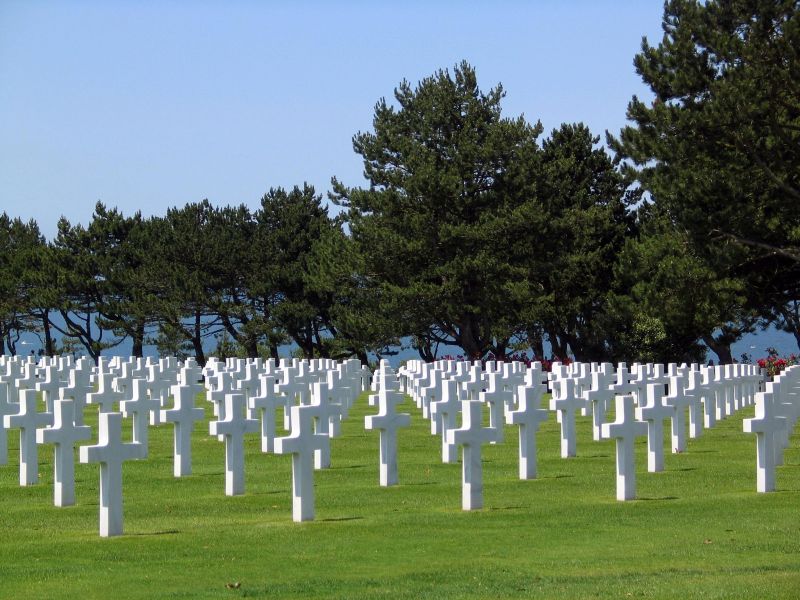Key Takeaways:
- The VA provides financial, burial, and ongoing support benefits to survivors of deceased veterans.
- Key benefits include Dependency and Indemnity Compensation (DIC), the Survivors Pension, and VA burial benefits.
- Eligibility and application requirements vary, so knowing what’s available can ease both financial and emotional burdens.
Losing a loved one is never easy, and when that loved one was a U.S. military veteran, the grief is often accompanied by deep pride in their service. During this difficult time, it’s important to know that the U.S. Department of Veterans Affairs (VA) offers a range of benefits designed to support surviving family members—both emotionally and financially.
Whether you're a spouse, child, or other dependent, the VA has programs in place to assist you through your time of loss and help secure your future.
{{blog-cta-checklist-large}}
Survivor Benefits Overview
Veterans benefits after death exist to assist the families left behind. These benefits are not limited to combat-related deaths; they can also apply to veterans who died of non-service-related causes.
The support may come in the form of:
- Monthly financial payments
- Funeral and burial expense coverage
- Educational, health, or caregiving support
These benefits are intended to ease the transition after a veteran’s passing and provide a degree of stability for surviving spouses, children, and even parents in some cases.
Dependency and Indemnity Compensation (DIC)
Dependency and Indemnity Compensation (DIC) is a monthly, tax-free payment available to eligible survivors of:
- Service members who died in the line of duty
- Veterans who passed away from service-connected conditions
Eligibility typically includes:
- Surviving spouses (including same-sex spouses and remarried spouses under certain conditions)
- Children under age 18 (or under 23 if attending school full time)
- Dependent parents with financial need
As of 2024, the base DIC rate for a surviving spouse is approximately $1,600/month, with additional amounts depending on dependent children or disabilities. The benefit is not income-based, making it a vital source of support for many families.
VA Survivors Pension
The VA Survivors Pension is another monthly payment—but this one is needs-based and intended for low-income, un-remarried spouses or children of wartime veterans.
Key features include:
- Income limits based on family size
- Additional payments available through the Aid and Attendance program if you need help with daily activities
To apply, you’ll need documents like:
- Proof of marriage or dependency
- Veteran’s discharge papers (DD214)
- Income and asset statements
This benefit helps survivors cover basic living expenses, especially those who are elderly or have limited financial means.
Burial and Memorial Benefits
Veteran burial benefits provide meaningful financial and ceremonial support. Eligible families may receive:
- A burial allowance to help cover funeral expenses
- A free burial plot and headstone or marker in a VA national cemetery
- Reimbursement for private burials (under specific conditions)
These benefits honor the service of veterans and ensure they are laid to rest with dignity—often at no cost to the family when using VA facilities. You can also apply for a Presidential Memorial Certificate and burial flags as part of this service.
Other Available Support
In addition to financial and burial benefits, the VA provides a variety of other survivor benefits:
- Education and Training (Chapter 35): Surviving dependents can receive financial aid to pursue college, career training, or certification programs.
- CHAMPVA Health Coverage: Eligible survivors who don’t qualify for TRICARE may still receive health care through this VA-sponsored plan.
- Grief Counseling and Support: Many VA Vet Centers offer counseling services to help family members navigate their grief and find emotional support in their communities.
How to Apply
Survivors can apply for benefits through several channels:
- Online: Visit VA.gov
- By Mail: Submit forms to the VA regional office
- With a Veterans Service Officer (VSO): These professionals offer free help with your applications and understanding your options
You'll typically need the following documents:
- The veteran’s DD214 discharge papers
- A copy of the death certificate
- Proof of relationship, such as a marriage license or birth certificate
Apply as soon as possible—some benefits are retroactive, but only within specific windows after the veteran’s death.
If you're feeling overwhelmed or unsure where to start, Elayne can take care of this process for you—from gathering documents to submitting applications—so you don’t have to manage it alone.
{{blog-cta-checklist-small}}
FAQs
1. Can I receive both DIC and Survivors Pension?
No, you generally cannot receive both benefits at the same time. The VA will pay whichever amount is higher.
2. How do I find out what I qualify for?
You can use the VA’s Survivors Benefits tool or contact a VSO to assess eligibility.
3. Are these benefits available to spouses of veterans who didn’t die in service?
Yes. Many benefits, including the Survivors Pension and burial benefits, are available to families of wartime veterans, even if the death was not service-connected.
4. Can children of veterans apply directly?
Yes—children can apply if they meet the criteria (typically under 18, or under 23 if enrolled in school full time).
The Department of Veterans Affairs provides a robust support system for families of deceased veterans, including financial aid, burial honors, health coverage, and more. These benefits help relieve both emotional and financial burdens, allowing families to grieve with dignity while receiving the support they deserve.
If you’re navigating the loss of a veteran, know that help is available—and honoring their service includes accessing the benefits they earned. Don’t hesitate to reach out to a Veterans Service Officer or visit VA.gov to learn more and begin the application process.















































